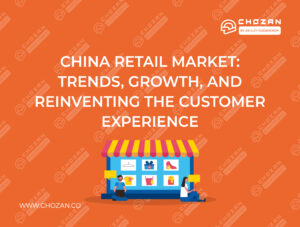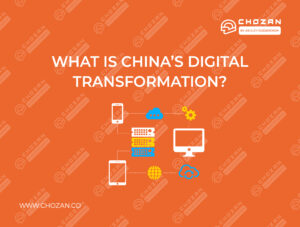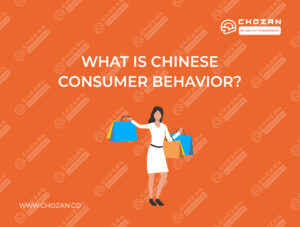November 11th is Double 11, also known as 11.11 or Single’s Day. It’s the single biggest shopping event in the world and is four times bigger than Black Friday and Cyber Monday. In 2020, Alibaba, with its Tmall and Taobao e-commerce platforms, raked in US$75 billion in sales and fellow e-commerce giant JD.com took in US$41 billion.
What started out years ago as a one-day online sale has now become an almost month-long e-commerce shopping event. For consumers, things now kick off in late October when people start pre-ordering highly discounted goods on JD.com, Taobao and Tmall. This year, the demand was so extreme that Taobao broke under the pressure and had an outage lasting around 20 minutes. For brands, the work ramps up in September as they apply to join the festival and work out what discounts and products they’ll offer customers. The savings need to be significant as consumers have come to expect big deductions.
So, what were some major trends of 11.11 in 2020? Let’s take a look.
Double 11 Festival is becoming more international than ever
Of the 250,000 brands taking part, 31,000 were from outside of China. Tmall featured brands from 84 countries and there were 2,600 new overseas brands. Kaola, Alibaba’s cross-border e-commerce platform, also participated in the event for the first time in 2020.
Lazada is Alibaba’s flagship e-commerce platform for Southeast Asia, including The Philippines, Indonesia, Malaysia, Vietnam, Singapore and Thailand. It has been taking part in Double 11 promotions since 2018. In 2020, it saw record sales.
Cainiao, the smart logistics and supply chain company launched by Alibaba, operated over 700 airfreight charter flights during China’s Single’s Day. They delivered 90 percent of the outward bound parcels and the company estimated that they were delivered 60 percent faster this year. Customers in major cities like Paris, Berlin, Madrid and Warsaw received their parcel in as little as three days.

Photo by Nathan John on Unsplash
On top of this, the annual Singles’ Day Gala on November 10 has featured international stars and performers like Cirque Du Soleil, Mariah Carey, Daniel Craig, Taylor Swift, Katy Perry, Magic Johnson, Pharrell Williams, David and Victoria Beckham, Nicole Kidman and more.
Technology was also added to livestreams to do real-time translation in 214 languages to make it easier for international viewers to take part… which brings us to the livestreaming trend.
Livestreaming is becoming more significant for Double 11

Photo by Libby Penner on Unsplash
2020 was China e-commerce’s Year of Livestreaming. It was instrumental in enticing price-sensitive customers with exceptional deals. Taobao also incentivized its livestreamers by rewarding those who did well with bonuses and giving them access to lots of products. Li Jiaqi and fellow mega-streamer Viya, generated over US$1 billion in non-refundable pre-order deposits starting on the first night of pre-sales period on October 21st.
2021’s Double 11 continued the trend. Top livestreamers were at the top of their game with Li Jiaqi taking pre-orders worth US$ 1.9 billion Viya, selling about US$ 1.3 billion during a marathon 14 hour livestream, and Cherie generating US$ 188 million.
Effects of Covid-19 on Double 11 Shopping Festival
A) Popularity of health categories grew
According to JD.com’s corporate blog, pre-orders for health equipment, over the counter medicine, exercise equipment and health related home appliances were all up from 4 to 10 times their sales in 2019.
B) Some companies had to do rapid pivots to domestic sales
Chinese companies that had seen their export business dry up due to the massive disruptions across the globe caused by Covid set up online shops in order to pivot to domestic sales during Single’s Day.
Luxury brand outlets also had an unusually strong presence to allow customers with a desire for high-end foreign products to make purchases online without leaving the country.

Photo by Henry Chen on Unsplash
C) New consumption categories emerged or grew
Particularly in the food and beverage sector, new categories emerged or grew enormously, like pre-made meals that sped up cooking times and healthy options like low alcohol wine, high fiber snacks and plant-based meat (which is seeing more and more popularity).
11.11 Festival’s calculation and gamification frustrations
Double 11 is renowned for pricing tricks and complicated discount terms that make it hard to determine if there are truly substantial savings to be had. This is beginning to annoy and frustrate users who want terms to be more transparent and don’t want to waste time doing unnecessary calculations. However, it’s a motivation for others who see it as a challenge and a sport. Groups like the “Stingy Women’s Federation” are also willing to share their tips and tricks with others.
Similarly, the Single’s Day shopping festival is known for its retail-tainment / shopper-tainment and gamified e-commerce. While many enjoy the built-in games, others are annoyed by constant invitations to play and games that require a lot of time and energy for minimal discount rewards.
This sentiment doesn’t appear to be affecting sales yet but it’s something to watch. It’s also unclear how recent restrictions for those under 18, limiting the time they can play online games and mandating game formats, will be applied to this kind of e-commerce gamification.
Although Double Eleven Festival is called Single’s Day, it’s really more of a season. It demands preparation and there are steps involved that brands new to the event might not know about, such as applying to take part in the different stages of the event, choosing products and deciding on discount terms. This is in addition to planning your digital strategy, executing campaigns, arranging collaborations, ensuring regulatory compliance, planning your social media marketing matrix and more.
If your brand needs help and guidance we can help with training tailored to your specific needs or answer your most urgent questions in an expert call or a series of consultation sessions. Contact us and we’ll arrange a video chat to find out what you need and move forward from there.




